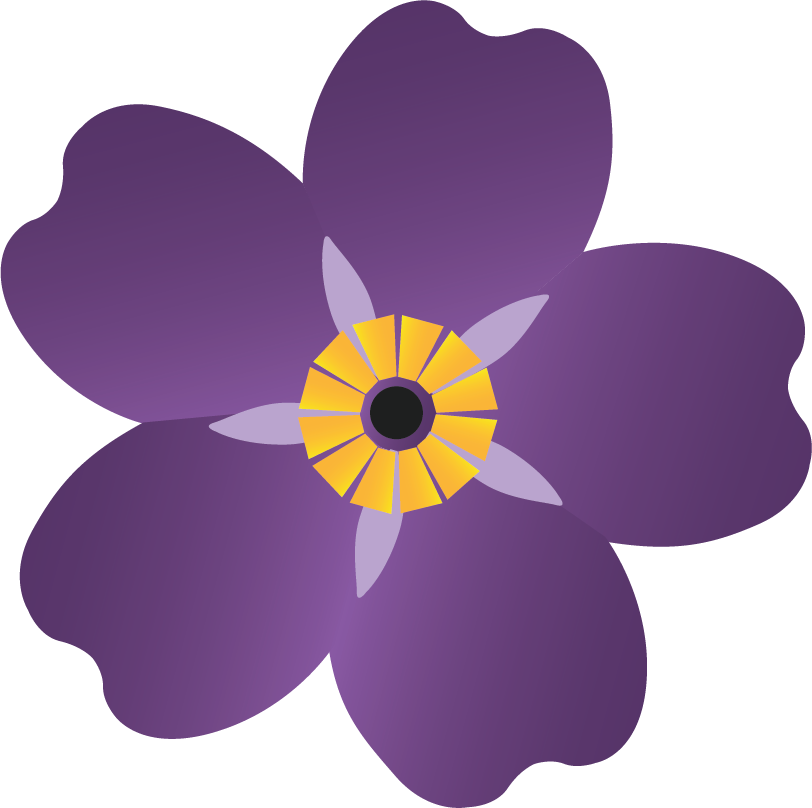Family Therapy for Addiction in New Jersey
Addiction affects entire families, not just the person using substances. When a loved one struggles with drugs or alcohol, family relationships often become strained, communication breaks down, and trust erodes. Family therapy for addiction brings everyone together to heal these wounds and support recovery as a team.
New Jersey Recovery Center in Fort Lee, New Jersey, understands that lasting recovery happens when families work together. Our outpatient programs in New Jersey incorporate evidence-based family therapy approaches that help families rebuild relationships, enhance communication, and foster a supportive environment for long-term sobriety.
What is Family Therapy for Addiction?
Family therapy for addiction is counseling that involves the entire family, not just the person with a substance use disorder. Unlike individual therapy, this counseling approach allows the notion that addiction is a family disease to ring true. Substance abuse doesn’t just affect one individual; it affects their loved ones, too. That’s why support in recovery is crucial for everyone involved.
In family therapy, a trained therapist meets with family members together to understand how addiction has changed their relationships. The therapist helps identify patterns of behavior that may enable substance use or create conflict. For example, one family member might cover up problems caused by drinking, while another becomes overly critical. Key elements of family addiction counseling include:
- Addressing family roles: Each person may take on specific roles like the enabler, the hero, or the scapegoat
- Improving communication: Learning how to talk openly without blame or judgment
- Setting boundaries: Understanding what behaviors to accept and what to refuse
- Building trust: Working through hurt feelings and broken promises
This type of therapy recognizes that when one person gets sober, the whole family system needs to adjust and heal together. It has proven to heal relationships and improve communication.
How Addiction Impacts Family Systems
Substance use disorders create ripple effects throughout families. According to the Substance Abuse and Mental Health Services Administration (SAMHSA), nearly one in eight children lives with at least one parent who has a substance use disorder.
Substance use disorders create ripple effects throughout families. According to the Substance Abuse and Mental Health Services Administration (SAMHSA), nearly one in eight children lives with at least one parent who has a substance use disorder.

Common family roles in addiction include:
- The person with addiction: Focuses energy on obtaining and using substances
- The enabler: Makes excuses, covers up problems, or provides money
- The hero: Takes on extra responsibilities to keep the family functioning
- The scapegoat: Gets blamed for family problems or acts out in response to stress
- The lost child: Stays quiet and tries to avoid attention or conflict
These roles develop as survival mechanisms, but they can prevent healthy communication and genuine intimacy between family members.
Evidence-Based Family Therapy Models
Several research-backed approaches are used in family therapy for substance abuse. Each model targets specific aspects of family functioning and addiction recovery.
Behavioral Couples Therapy
Behavioral couples therapy (BCT) works with couples where one partner has a substance use disorder. This approach combines addiction treatment with relationship counseling. Couples learn communication skills, create daily recovery contracts, and plan sober activities together.
Research shows BCT increases abstinence rates by 60-70% compared to individual treatment alone. The therapy typically involves 12-20 weekly sessions focused on supporting sobriety and improving the relationship.
Multidimensional Family Therapy
Multidimensional family therapy (MDFT) is designed for adolescents with substance use problems. This model addresses multiple areas that influence teen drug use, including family relationships, school performance, and peer groups.
MDFT includes both family sessions and individual work with the teenager. Parents learn new parenting strategies while teens develop coping skills and decision-making abilities. Treatment usually lasts 4-6 months with sessions held multiple times per week.
Community Reinforcement and Family Training
Community Reinforcement and Family Training (CRAFT) helps families encourage treatment-resistant loved ones to seek help. Instead of confrontation or ultimatums, CRAFT teaches positive communication and motivational strategies.
Studies show CRAFT achieves engagement rates of 64-86% for getting reluctant individuals into treatment. Family members learn to reward sober behavior while allowing natural consequences for substance use.
Don't Wait Any Longer
Request a Callback
New Jersey Recovery Center is available 24 hours a day to provide quality assistance in finding the best addiction treatment for your needs. Fill out the form to receive a free, confidential callback.
Benefits of Family Therapy for Addiction
Family therapy for addiction provides measurable benefits for everyone involved. Research from the National Institute on Drug Abuse (NIDA) shows that family involvement in treatment reduces relapse rates by 30-50%.
Family therapy improves communication skills and conflict resolution abilities. Members learn to express feelings without attacking or defending. They practice listening without immediately trying to fix problems or offer advice. Additional benefits of family therapy include:
Family therapy improves communication skills and conflict resolution abilities. Members learn to express feelings without attacking or defending. They practice listening without immediately trying to fix problems or offer advice. Additional benefits of family therapy include:
These changes create a more stable environment that supports long-term recovery for everyone in the family.
The Family Therapy Process
Family therapy for addiction follows a structured approach that typically unfolds over several months. The process begins with an assessment phase where the therapist meets with family members to understand their relationships, communication patterns, and how addiction has affected their daily lives.
During early sessions, families learn about addiction as a disease and how it impacts brain chemistry and behavior. This education helps reduce blame and shame while building empathy between family members. The therapist introduces basic communication skills and conflict resolution techniques. Family therapy sessions typically follow the process below:
- Assessment (1-3 sessions): Understanding family dynamics and substance use history
- Early treatment (4-8 sessions): Learning about addiction and practicing new communication skills
- Middle treatment (9-16 sessions): Working through specific conflicts and relationship issues
- Late treatment (17-20 sessions): Solidifying changes and planning for ongoing recovery
- Aftercare: Periodic check-ins and maintenance sessions as needed
As therapy progresses, families take more responsibility for solving problems and supporting each other’s growth.
When Family Therapy May Not Be Appropriate
While family therapy helps most situations, there are times when it may not be safe or effective. Active domestic violence makes family sessions dangerous and counterproductive. In these cases, individual safety planning and separate counseling are priorities.
Severe, untreated mental health conditions in family members can interfere with the therapy process. For example, someone experiencing active psychosis or severe depression may not be able to participate meaningfully in family sessions. Other situations where modifications may be needed:
- Early recovery fragility: Some individuals need individual stabilization before family involvement
- Geographic barriers: Distance may require virtual sessions or modified approaches
- Unwilling participants: Family members who refuse to participate may need individual outreach first
Even when full family therapy isn’t possible, individual counseling with family components or support groups can still provide benefits.
Finding Family Therapy in New Jersey
Locating quality family addiction counseling in New Jersey involves researching providers with specialized training. Look for therapists who are licensed in marriage and family therapy or have advanced certification in addiction counseling.
Ask potential providers about their experience with evidence-based models, such as BCT, MDFT, or CRAFT. Inquire about their success rates and approach to family involvement in addiction treatment. Questions to ask your providers:
Consider CBT for addiction if:
- What specific family therapy models do you use for addiction treatment?
- How many sessions typically involve family members?
- Do you offer evening or weekend appointments for working families?
- What insurance plans do you accept, and do you offer sliding scale fees?
- Are virtual sessions available for family members who live far away?
Many providers offer initial consultations to determine if their approach fits your family’s needs and situation.
Family Therapy for Addiction FAQs
How effective is family therapy for substance use disorder treatment?
Research shows family therapy increases treatment retention by 40% and reduces relapse rates by 30-50% compared to individual therapy alone, according to studies by the National Institute on Drug Abuse.
How long does family therapy for addiction treatment typically last?
Most evidence-based family therapy programs require 12-20 sessions over 3-6 months, though duration varies based on family needs and the specific therapy model used.
Can family therapy help if the person with addiction refuses to participate?
Yes, approaches like CRAFT are specifically designed to help families even when their loved one won’t enter treatment, with success rates of 64-86% for eventually engaging resistant individuals in recovery programs.
What does family therapy for addiction cost in New Jersey?
Family therapy sessions in New Jersey typically cost $100-250 per session, though many insurance plans cover these services, and sliding scale options are available through community providers.
Does virtual family therapy work as well as in-person sessions for addiction treatment?
Research indicates that virtual family therapy can be equally effective as face-to-face sessions, making it a practical option for families with scheduling conflicts or geographic challenges.
A Path to Recovery for the Whole Family
Family involvement strengthens addiction recovery outcomes and helps heal relationships damaged by substance use. Taking the first step toward family therapy requires courage, but recovery is possible when families work together.
New Jersey Recovery Center in Fort Lee, NJ, provides comprehensive family therapy programs as part of our outpatient treatment services. Our experienced therapists use evidence-based approaches to help families rebuild trust, improve communication, and create supportive environments for lasting recovery. Contact us today to learn how our family therapy programs can help your family heal together.
